When people think of caffeine, coffee is what usually comes into mind. It’s such a huge part of people’s lives that it has become a culture onto itself. Several social functions revolve around drinking coffee, and there are some who enjoy trying out different coffee beans to experience new flavors via cupping, an event similar to wine tasting.
But what about other plants that contain caffeine? Guarana, for example, contains twice as much caffeine as coffee beans. However, not many people know about it because its production and consumption is mainly focused in Brazil. Only recently has guarana been gaining recognition for its energy-boosting benefits internationally. If you’re looking for an alternative to coffee, you should definitely give guarana a try.
What Is Guarana?
Guarana (Paullinia cupana) is a climbing shrub native to the forests of Amazon. It often clings to trees and can reach up to a height of 12 meters. It produces a fruit that has a brown or red skin, with a black seed surrounded by white arils. At first glance, the guarana looks like an eyeball, and its startling appearance has become the subject of its own creation myth told by Brazilian tribes.
Guarana gained popularity when Jesuit missionaries in the Amazon noted that tribesmen who consumed the seed gained so much energy, that it allowed them to hunt for extended periods of time. To consume the guarana, the tribesmen dried and roasted them, then ground them into a paste with water. Since then, it spread to the European settlers and has been a part of Brazilian culture.
Nowadays, guarana is commonly sold as a powder, which can be used to make coffee or tea, or added to smoothies. You can also use it to make homemade energy bars. To create your own guarana powder, simply roast high-quality seeds under high heat for 10 minutes before grinding them in a food processor.
Health Benefits of Guarana
Since guarana contains caffeine, it has comparable benefits to coffee. Among those include:
- Weight Management
The caffeine content of guarana has a noted effect on those who are trying to maintain their weight. Since caffeine is considered to be a stimulant, your alertness and physical performance improve. This requires more energy to burn, and guarana works by mobilizing the stored fats and glucose in your body and using them as fuel, which in turn, can help you lose weight.
In a study published in the Journal of Human Nutrition and Dietetics, an herbal capsule mixture composed of guarana, yerba maté and damiana was consumed regularly by overweight test subjects over the course of 45 days. The researchers noted that some participants were able to maintain their weight, while some lost an average of 5 kilograms (over 11 pounds).
- Improved Mental Focus
Just like drinking a cup of black coffee in the morning gives your mind the focus it needs, consuming guarana can provide the same benefits, and probably even better. The stimulants found in guarana all work together to keep your mind awake, which can last for several hours. This is because guarana slowly releases the caffeine into your system, allowing you to feel the effects over a longer period of time compared to coffee.
- Antioxidant and Antimicrobial Effects
Guarana is said to contain more antioxidants than green tea. In particular, guarana contains catechin, which helps reduce oxidative stress that can contribute to the development of cancer, diabetes and cardiovascular diseases, as well as being an anti-inflammatory. Guarana also has antimicrobial properties, which can help act as a natural antibiotic.
- Improved Physical Performance
For those who are into sports, taking guarana can help your muscles recover faster. This works by preventing the buildup of lactic acid, a contributing factor to muscle soreness.
Different Uses of Guarana
Guarana is a major part of Brazilian culture, having been passed down from tribes to settlers. One of its most well-known benefits is its ability to boost your energy, which is why guarana is added to various energy-boosting products, like energy bars. Most energy bar recipes that use guarana also include fruits and natural sweeteners to mask its very bitter taste, along with coconut oil to add healthy fat.
However, beware of commercial energy bars and energy drinks that, even if they contain guarana, are not recommended for consumption, because they are loaded with other additives that may wreak havoc on your health when consumed long-term.
Guarana is also available as a supplement, which is usually marketed as guarana seed extract. The benefits of this product are supposedly the same as natural guarana, but there are reports of side effects such as nervousness, insomnia, headaches and heart palpitations.
If you choose to use guarana seed extract, consult with a doctor first to be sure you can handle the dosage and avoid any potentially dangerous side effects. However, refrain from consuming guarana if you have/are:
- Dealing with anxiety: If you’re currently diagnosed with an anxiety disorder, guarana may amplify its symptoms further.
- Pregnant: High amounts of guarana have been linked to an increased risk of miscarriage.
- Heart disease: The caffeine in guarana can cause an irregular heartbeat, which can exacerbate heart disease.
- Glaucoma: Consuming guarana can increase the pressure in your eye, which can worsen your symptoms.
- Digestive problems: Caffeine can cause diarrhea and/or exacerbate irritable bowel syndrome.
- Diabetic: Guarana may negatively affect your blood sugar control.
If your doctor gives you the go signal to add guarana to your diet, look for companies that sell “wildcrafted” guarana powder, as this means their product is organic and has gone through stringent quality checks and preservation methods to keep the nutrients and the flavor sealed.
Guarana Nutrition FactsServing Size: 3 grams |
||
| Amt. Per Serving |
% Daily Value* |
|
| Calories | 9 | |
| Calories from Fat | 0 | |
| Total Fat | 0 | 0% |
| Saturated Fat | 0 g | 0% |
| Trans Fat | ||
| Cholesterol | 0 mg | 0% |
| Sodium | 0 mg | 0% |
| Total Carbohydrates | 2 g | |
| Dietary Fiber | 0 g | |
| Sugar | 0 g | |
| Protein | 0 g | |
| Vitamin A0% | Vitamin C | 0% |
| Calcium0% | Iron | 0% |
*Percent Daily Values are based on a 2,000 calorie diet. Your daily values may be higher or lower depending on your calorie needs.

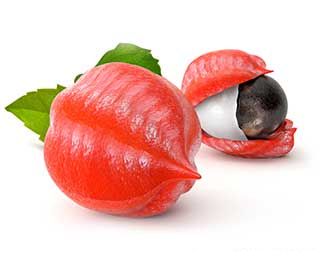
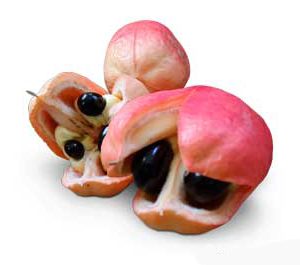
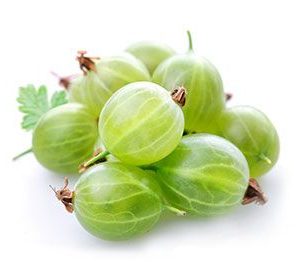
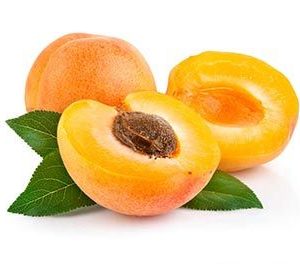
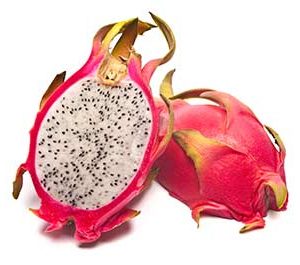
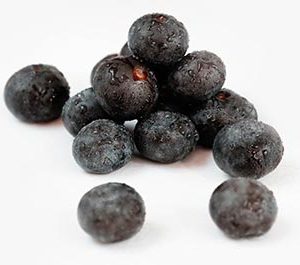
Reviews
There are no reviews yet.